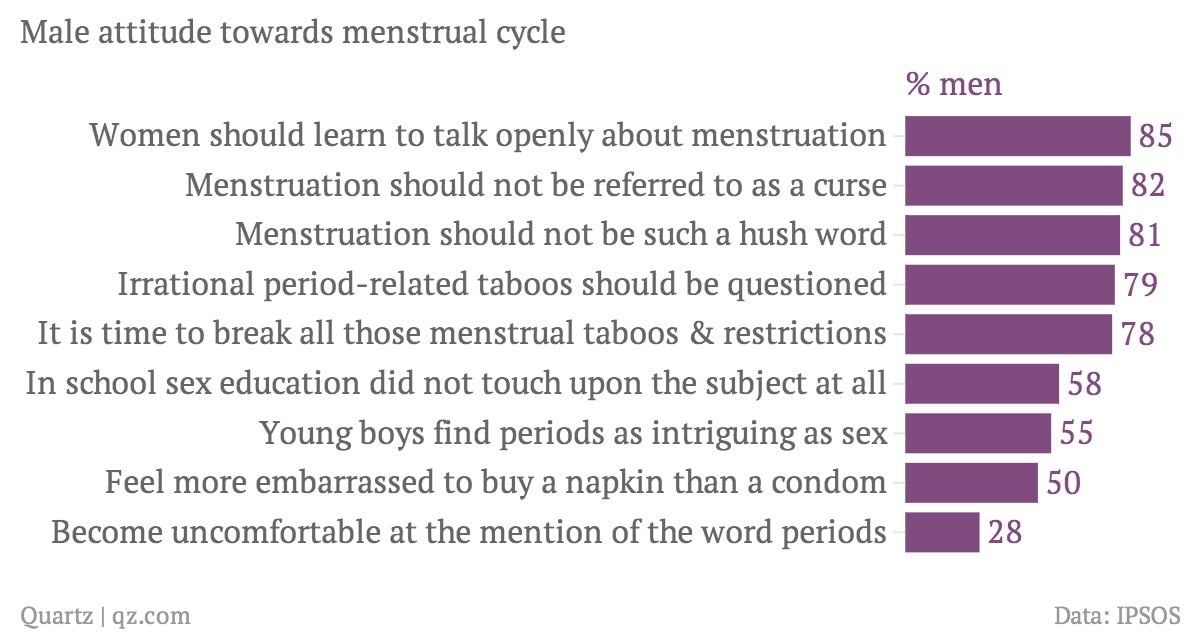The full extent of what urban India believes about menstruation is extraordinary
In his first Independence Day speech, prime minister Narendra Modi discomfited the country when he stressed on the pain and diseases many Indian women are vulnerable to because they do not have access to toilets and have to control their urges till after dark. Hardly any other prime minister has discussed sanitation for women so frankly and openly.
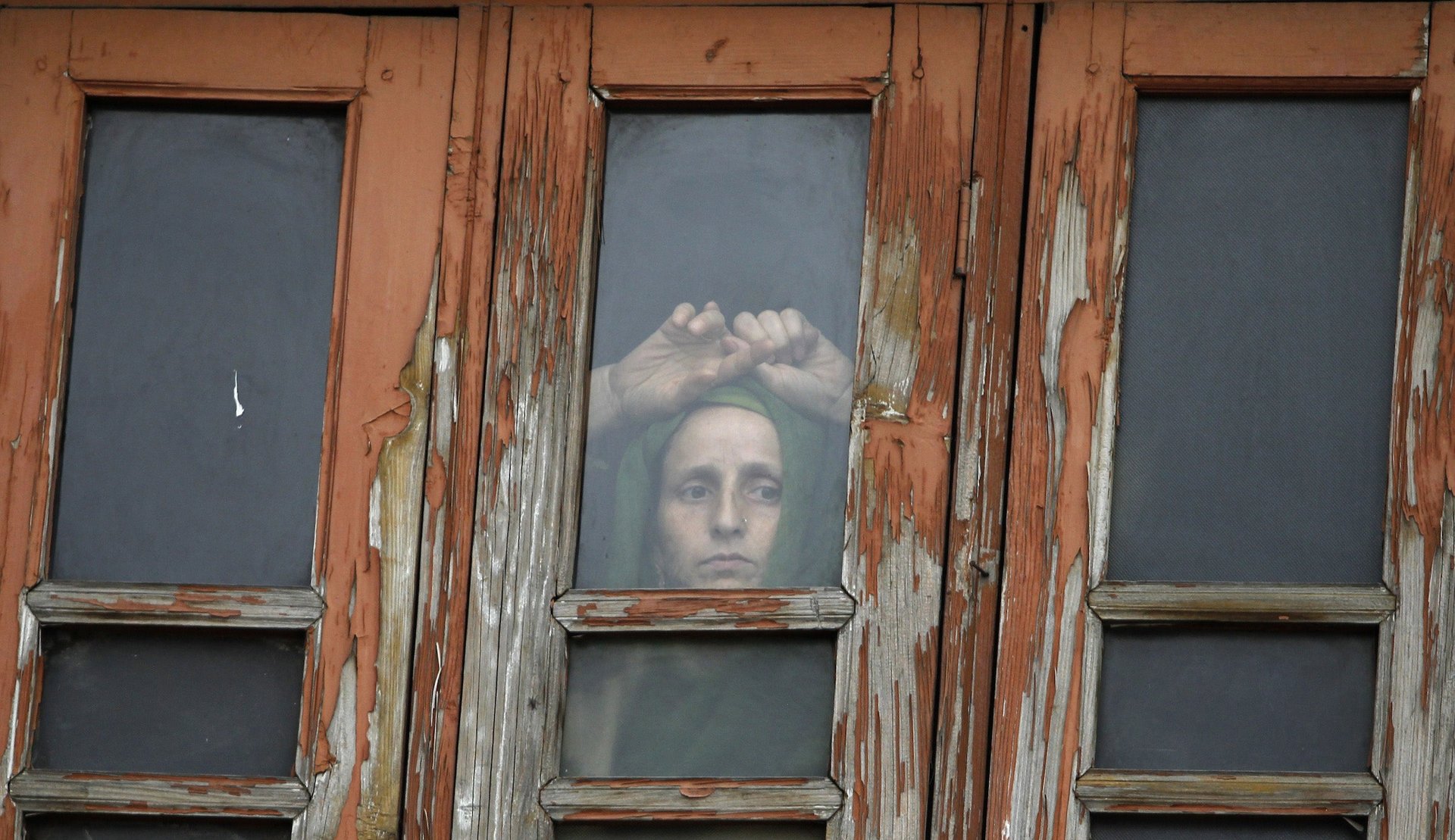

In his first Independence Day speech, prime minister Narendra Modi discomfited the country when he stressed on the pain and diseases many Indian women are vulnerable to because they do not have access to toilets and have to control their urges till after dark. Hardly any other prime minister has discussed sanitation for women so frankly and openly.
While that is bad enough, attitudes about another normal female bodily function—menstruation—are even more rooted in superstition. The extent of ignorance regarding menstruation has been documented in a recent study by sanitary napkin maker Whisper and market researcher IPSOS. The survey was conducted among more than 1,100 respondents from across India.
The results show that the stranglehold of custom and superstition is not easing even in urban areas.
A majority of women believe that they should not touch a pickle jar during their periods. They also don’t water plants, enter temples, cook food or sleep in the same bed as their husbands. Most of these taboos are rooted in the belief that a menstruating woman is impure and can contaminate anything she touches. It is important to note that most of the people interviewed were not from villages, but urban Indian cities such as Delhi, Mumbai, Chennai, Kolkata, Bangalore and Hyderabad.
The male respondents displayed a slightly more liberal attitude. Majority said that they would like women to stop referring to their periods as a curse. But they also revealed that they are more embarrassed to buy a sanitary napkin than a condom.
According to research firm Euromonitor, nearly 70% of Indian women, out of ignorance and poverty, use old rags instead of sanitary towels to stem their periods. Such unhygienic practices increase the risk of reproductive diseases in Indian women.
Here are four graphs that encapsulate India’s attitude towards periods.
Period of shame
Seventy five percent women in India buy sanitary napkins wrapped in a brown bag or newspaper, because of the shame associated with menstruation. They also never ask a male member of the family to buy sanitary towels or tampons.
Aditi Gupta is the founder of a website and comic book called menstrupedia.com, which aims to shatter the stigma associated with periods. She says she used old rags while growing up to stem periods because she was too embarrassed to ask a male shopkeeper for sanitary napkins. “I come from a very educated family, but we never questioned the shame or myths surrounding the female body,” says 29-year-old Gupta, whose one-year-old website on menstrual awareness gets nearly 100,000 visitors every month.
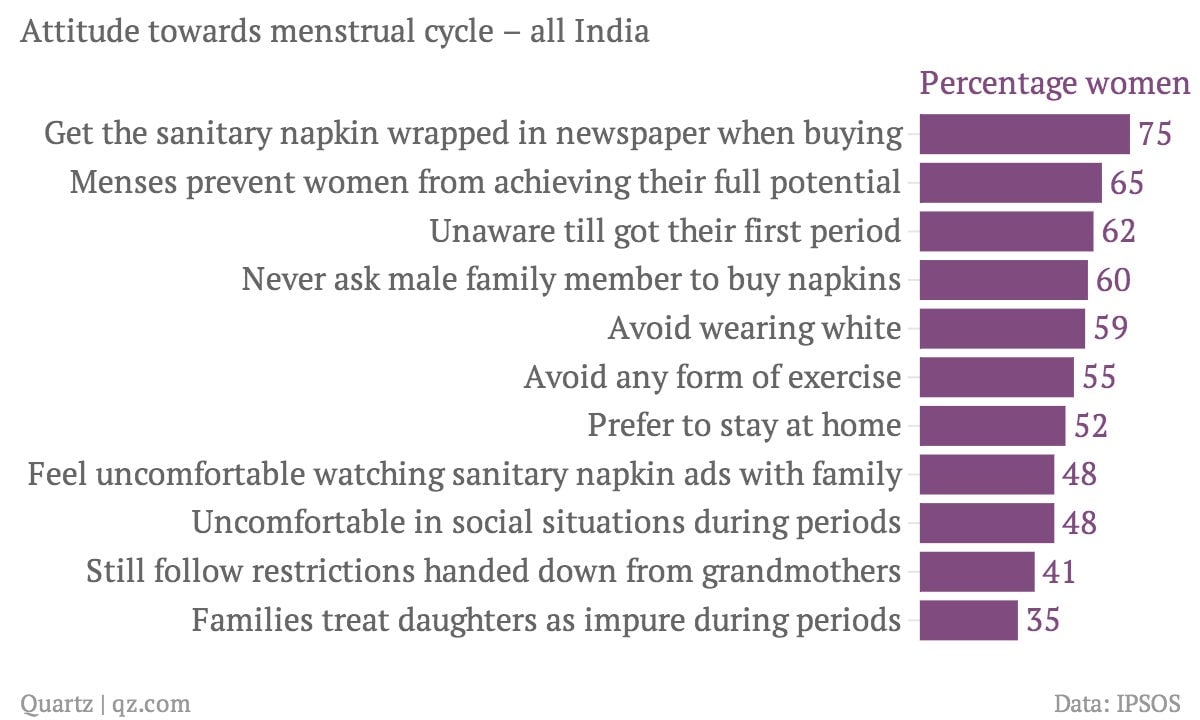
Different regions have different customs
Women also fear social discrimination, both within and outside their homes. Nearly 50% of the respondents from South India do not share a bed with their spouse during periods. More than one-third of urban Indian parents treat their daughters as impure during periods.
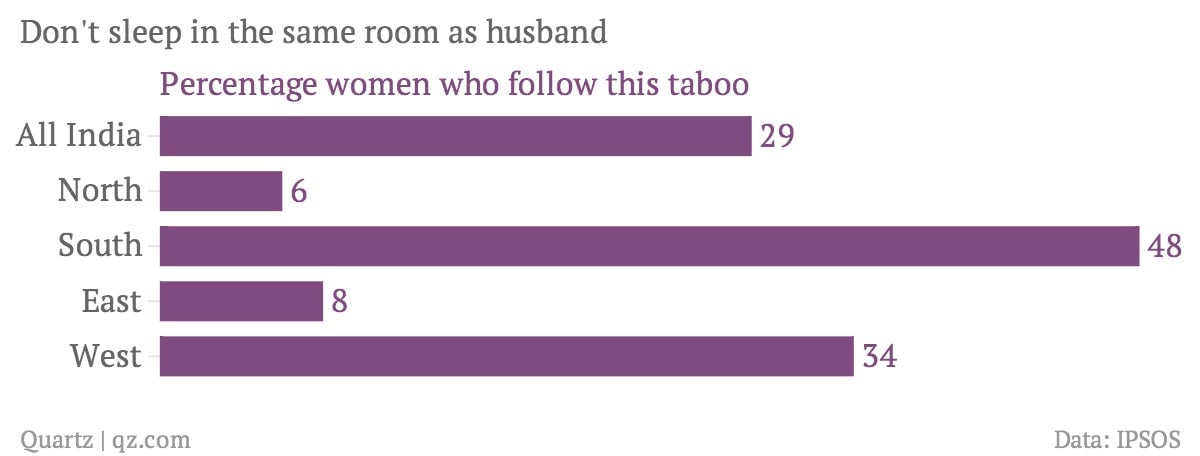
Taboos followed during periods
One of the most popular myths surrounding periods is that a woman is impure during this time and her touch will spoil pickles. Many families still forbid girls from entering the kitchen while they are menstruating.
“Decades ago, village women used to bathe in ponds and during periods they were told to avoid communal bathing.” says Aditi, while explaining why women do not wash their hair while menstruating. “But now we live in modern, urban houses with private bathrooms.”
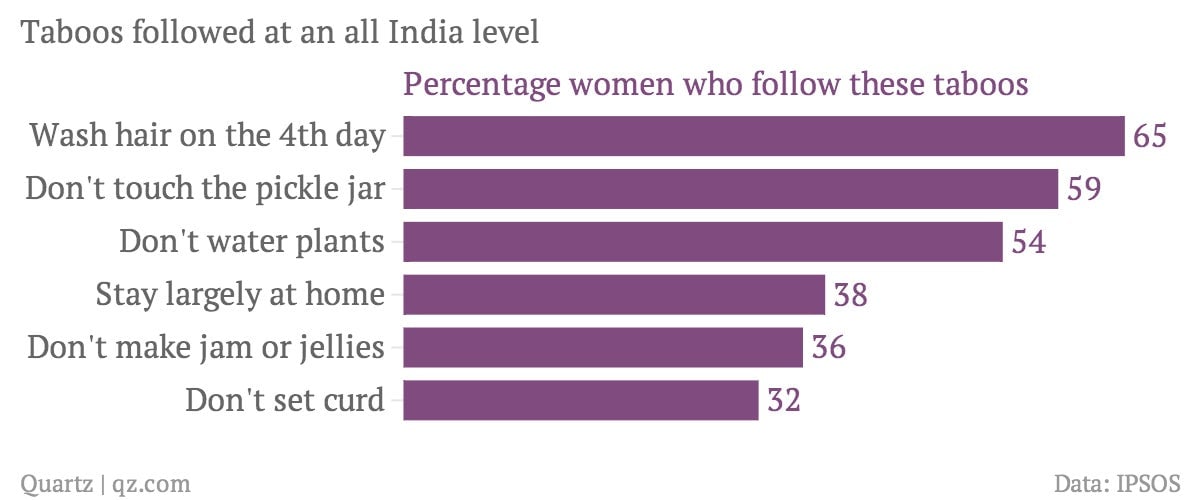
Along with this survey, sanitary napkin brand Whisper has also launched a campaign called Touch the Pickle.
Curious, clueless boys
The researchers also interviewed more than 200 men about periods, and the good news is that almost all of them want the secrecy and embarrassment to end. However, both men and women learn very little about periods while they are in school. In fact, more than half the women did not know much about menstrual cycle till they got their first periods.
